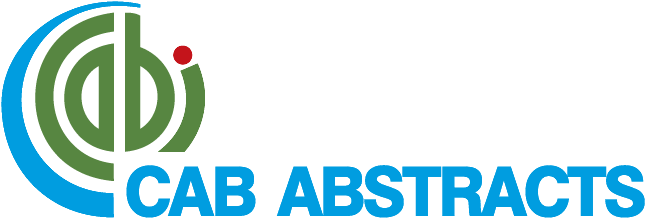The educational and pedagogical intervention in scientific research
DOI:
https://doi.org/10.56294/cid202370Keywords:
Educational Intervention, Pedagogical Intervention, Scientific ResearchAbstract
Educational intervention requires professionals to act responsibly by employing methods and procedures that ensure appropriate outcomes. In addition, they must submit their interventions to an analysis based on scientific research for accurate evaluation. It is important to note that educational intervention and pedagogical intervention are not identical concepts, and it is necessary to establish the differences between the two. Educational intervention implies respecting the agency of the learner, which means that the educator's actions should result in a response on the part of the learner that does not necessarily have to be intentionally educational in nature, but may be a genuine outcome. On the other hand, pedagogical intervention refers to intentional actions that are carried out in the context of the educational task, with the purpose of achieving objectives and using resources supported by sound knowledge about education and the functioning of the educational system. This paper addresses the uniqueness of educational intervention and highlights its strength and validity when based on scientific research
References
1. Bailey DH, Duncan GJ, Cunha F, Foorman BR, Yeager DS. Persistence and Fade-Out of Educational-Intervention Effects: Mechanisms and Potential Solutions. Psychol Sci Public Interest 2020;21:55-97. https://doi.org/10.1177/1529100620915848.
2. Menéndez ES, Martinez MEM. Problems of Learning and Pedagogical Intervention. IJSSH 2019;3:105-11. https://doi.org/10.29332/ijssh.v3n2.301.
3. Albarqouni L, Hoffmann T, Glasziou P. Evidence-based practice educational intervention studies: a systematic review of what is taught and how it is measured. BMC Medical Education 2018;18:177. https://doi.org/10.1186/s12909-018-1284-1.
4. Xu Y, Lau Y, Cheng LJ, Lau ST. Learning experiences of game-based educational intervention in nursing students: A systematic mixed-studies review. Nurse Education Today 2021;107:105139. https://doi.org/10.1016/j.nedt.2021.105139.
5. Wan H, Liu K, Yu Q, Gao X. Pedagogical Intervention Practices: Improving Learning Engagement Based on Early Prediction. IEEE Transactions on Learning Technologies 2019;12:278-89. https://doi.org/10.1109/TLT.2019.2911284.
6. Alan S, Ertac S. Fostering Patience in the Classroom: Results from Randomized Educational Intervention. Journal of Political Economy 2018;126:1865-911. https://doi.org/10.1086/699007.
7. Montano M de las NV. The psychiatric dysfunctions associated to the labor estrés in professionals of the education. Interdisciplinary Rehabilitation / Rehabilitacion Interdisciplinaria 2023;3:60-60. https://doi.org/10.56294/ri202360.
8. Hill MV, Stucke RS, McMahon ML, Beeman JL, Barth RJJ. An Educational Intervention Decreases Opioid Prescribing After General Surgical Operations. Annals of Surgery 2018;267:468. https://doi.org/10.1097/SLA.0000000000002198.
9. Cianciolo AT, Regehr G. Learning Theory and Educational Intervention: Producing Meaningful Evidence of Impact Through Layered Analysis. Academic Medicine 2019;94:789. https://doi.org/10.1097/ACM.0000000000002591.
10. Meneses J, Bernabeu J, Bonillo A, Eiroa-Orosa FJ, Rodríguez-Gómez D, Valero S, et al. Intervenció educativa basada en evidències científiques. Cataluña: Universitat Oberta de Catalunya; 2018.
11. Montano M de las NV, Martínez M de la CG, Lemus LP. Interdisciplinary Exploration of the Impact of Job Stress on Teachers’ Lives. Interdisciplinary Rehabilitation / Rehabilitacion Interdisciplinaria 2023;3:57-57. https://doi.org/10.56294/ri202357.
12. Touriñán-López JM (José M). Claves para aproximarse a la educación artística en el sistema educativo: educación “por” las artes y educación “para” un arte. Keys to Approach Arts Education in the Educational System: Education “through” the Arts and Education “for” an Art 2011. https://doi.org/10.15581/004.21.4422.
13. Ali S, Frederickson N. Investigating the Evidence Base of Social Stories. Educational Psychology in Practice 2006;22:355-77. https://doi.org/10.1080/02667360600999500.
14. Thomm E, Gold B, Betsch T, Bauer J. When preservice teachers’ prior beliefs contradict evidence from educational research. British Journal of Educational Psychology 2021;91:e12407. https://doi.org/10.1111/bjep.12407.
15. Cutilli CC. Excellence in Patient Education: Evidence-Based Education that “Sticks” and Improves Patient Outcomes. Nursing Clinics 2020;55:267-82. https://doi.org/10.1016/j.cnur.2020.02.007.
16. Campbell DT, Stanley JC. Experimental And Quasi-Experimental Design for Research. Chicago: Rand Mc 1966.
17. Cook TD, Campbell DT, Day A. Quasi-experimentation: Design & analysis issues for field settings. vol. 351. Houghton Mifflin Boston; 1979.
18. Touriñán JM. Intervención pedagógica. JA Caride y F Trillo (Coords) Diccionario galego de pedagoxía Vigo, Galaxia 2010:367-8.
19. Touriñán JM. El desarrollo del sistema universitario y de la comunidad científica como instrumento de innovación, en la obra Datos estadísticos del Sistema Universitario de Galicia 1993-94 1995.
20. Espinoza-Freire EE. La planeación interdisciplinar en la formación del profesional en educación. Maestro y Sociedad 2018;15:77-91.
21. Fernández JT, Bueno CR. Evaluación de competencias profesionales en educación superior: retos e implicaciones. Educación XX1 2016;19. https://doi.org/10.5944/educxx1.12175.
22. Salazar SF. El conocimiento pedagógico del contenido como categoría de estudio de la formación docente. Actualidades Investigativas en Educación 2005;5. https://doi.org/10.15517/aie.v5i2.9139.
23. Guerra P, Montenegro H. Pedagogical knowledge: exploring new approaches. Educ Pesqui 2017;43:663-80. https://doi.org/10.1590/S1517-9702201702156031.
24. Montano M de las NV. A comprehensive approach to the impact of job stress on women in the teaching profession. Interdisciplinary Rehabilitation / Rehabilitacion Interdisciplinaria 2023;3:56-56. https://doi.org/10.56294/ri202356.
25. Backes VMS, Moyá JLM, Prado ML do. Proceso de construcción del conocimiento pedagógico del docente universitario de enfermería. Rev Latino-Am Enfermagem 2011;19:421-8. https://doi.org/10.1590/S0104-11692011000200026.
26. Marcos JM, Sánchez RG, Rodríguez MLG. La construcción de conocimiento pedagógico de los profesores en formación durante el prácticum. Revista Electrónica de Investigación Educativa 2019;21:1-13. https://doi.org/10.24320/redie.2019.21.e27.1831.
27. Ortega JM. El conocimiento tecnológico pedagógico de contenido (TPCK): un análisis a partir de la relación e integración entre el componente tecnológico y conocimiento pedagógico de contenido. Tecné, Episteme y Didaxis: TED 2020. https://doi.org/10.17227/ted.num47-11339
Published
Issue
Section
License
Copyright (c) 2023 María de las Nieves Veloz Montano , Mercedes Keeling Álvarez (Author)

This work is licensed under a Creative Commons Attribution 4.0 International License.
The article is distributed under the Creative Commons Attribution 4.0 License. Unless otherwise stated, associated published material is distributed under the same licence.






